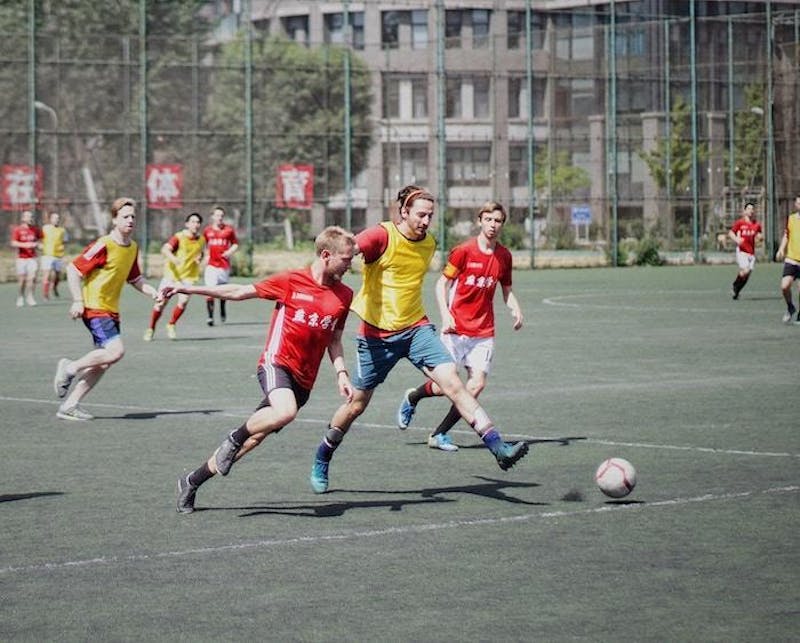
Everybody needs exercise — it helps you maintain a healthy weight, keeps your muscles and bones in shape, and, with a proper diet, can prevent diseases. Sports are a great way to stay physically active. Unfortunately, most sports also carry the risk of injury. In college sports, for example, 90% of athletes indicate they’ve experienced injuries, and 54% have played while injured, which increases the potential for worse injuries later.
Back injuries can be especially problematic for athletes, from sprains, strains, and spasms to damage to your tendons and spinal disks, and even bone fractures. And if your injury requires surgery, the road to recovery can be difficult.
Patients in the Shrewsbury, Toms River, or Edison, New Jersey, areas recovering from back surgery can find help at the Center for the Functional Restoration of the Spine. Dr. Marc Menkowitz and Dr. Steve Paragioudakis specialize in many types of spinal problems and back disorders and can help you on the road to recovery. Here are five tips to help you recover from back surgery.
1. Keep realistic goals about how long you will take to recover
There are four general types of back surgery: laminectomy, discectomy, spinal fusion, and artificial disc replacement. Each procedure has different recovery times and affects the body differently.
Laminectomy
Laminectomies are generally used for conditions like spinal stenosis and are performed with a small incision in the spine. It takes a week or so to recover and requires up to two months of no heavy lifting or intense physical activity.
Discectomy
Discectomies remove damaged spinal discs. This is often due to a herniated disc or a degenerative disc disease. It generally takes a week to recover with no heavy lifting for months.
Spinal fusion
Spinal fusion is one of the oldest forms of back surgery and recovery takes a long time. It uses screws, rods, and plates to stabilize vertebrae segments, and can take up to a year to recover from.
Artificial disc replacement
Both spinal fusion and artificial disc replacement surgeries are used to address the same types of lower back injuries. Where the spinal fusion creates stability it can also limit overall movement. Artificial disc replacements replace damaged discs with artificial, semi-flexible biopolymers. The result is full range of motion and shorter recovery time, which is about six weeks.
This doesn’t cover time spent in ongoing physical therapy, which may extend your recovery time. So be prepared for an appropriate period based on your type of surgery.
2. Your recovery time will be affected by age and physical condition
No matter what surgery you’ve had, age and physical health directly affect recovery time and may affect what you can do once you’ve fully recovered. The older or less healthy you are, the longer your body may take to recover from surgery. Consult with our specialist to get a full picture of what you can expect.
3. Be patient while healing
For athletes, this can be especially difficult, but once the surgery is done, the rehabilitation process will be gradual. Working your way back to normal function will take time, and getting back into athletic shape will take even longer. The amount of time it takes varies depending on the procedure, but pacing yourself is key, regardless of the timeframe.
4. Take physical therapy seriously
Restoring back strength is just as important as healing from your surgery. The gradual process of physical therapy usually starts in the early recovery period and begins with low impact stretches and exercises. This helps to build flexibility and muscle strength in your back. Physical therapy helps you as you heal and makes your transition back to sports easier.
5. Know your limitations
Modern technology has made back surgeries safer and easier, but they still cut into your body. Healing from any of these surgeries means following medical instructions, doing your physical therapy, and not overdoing it. Overworking yourself increases the risk of making your back worse and halting your road to recovery. Listen to our specialists, physical therapist, and all of the other medical staff that are trying to help you get back into shape.
If you’re recovering from back surgery and need a team to help you on your path, make an appointment with Drs. Menkowitz and Paragioudakis at the Center for the Functional Restoration of the Spine today.

